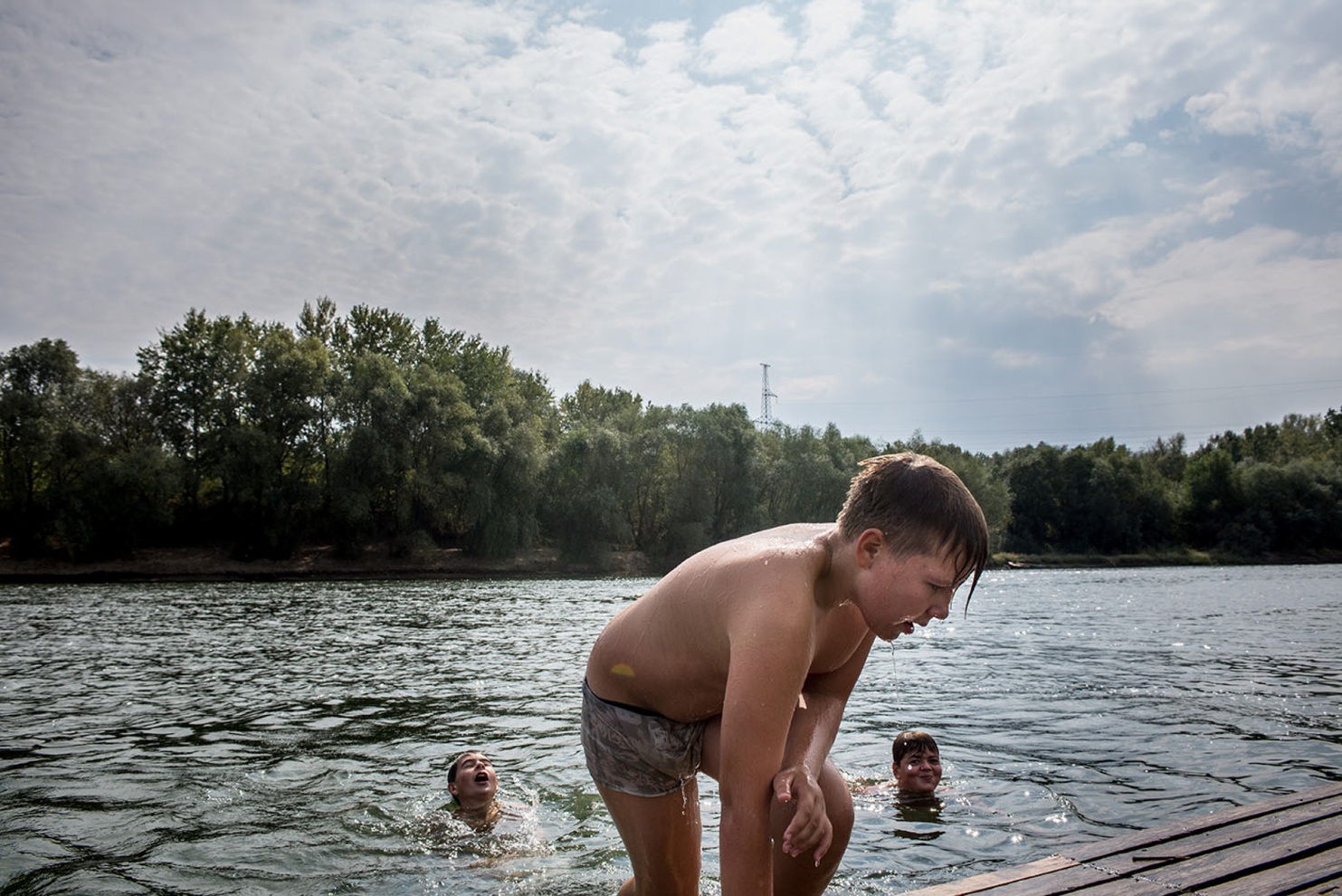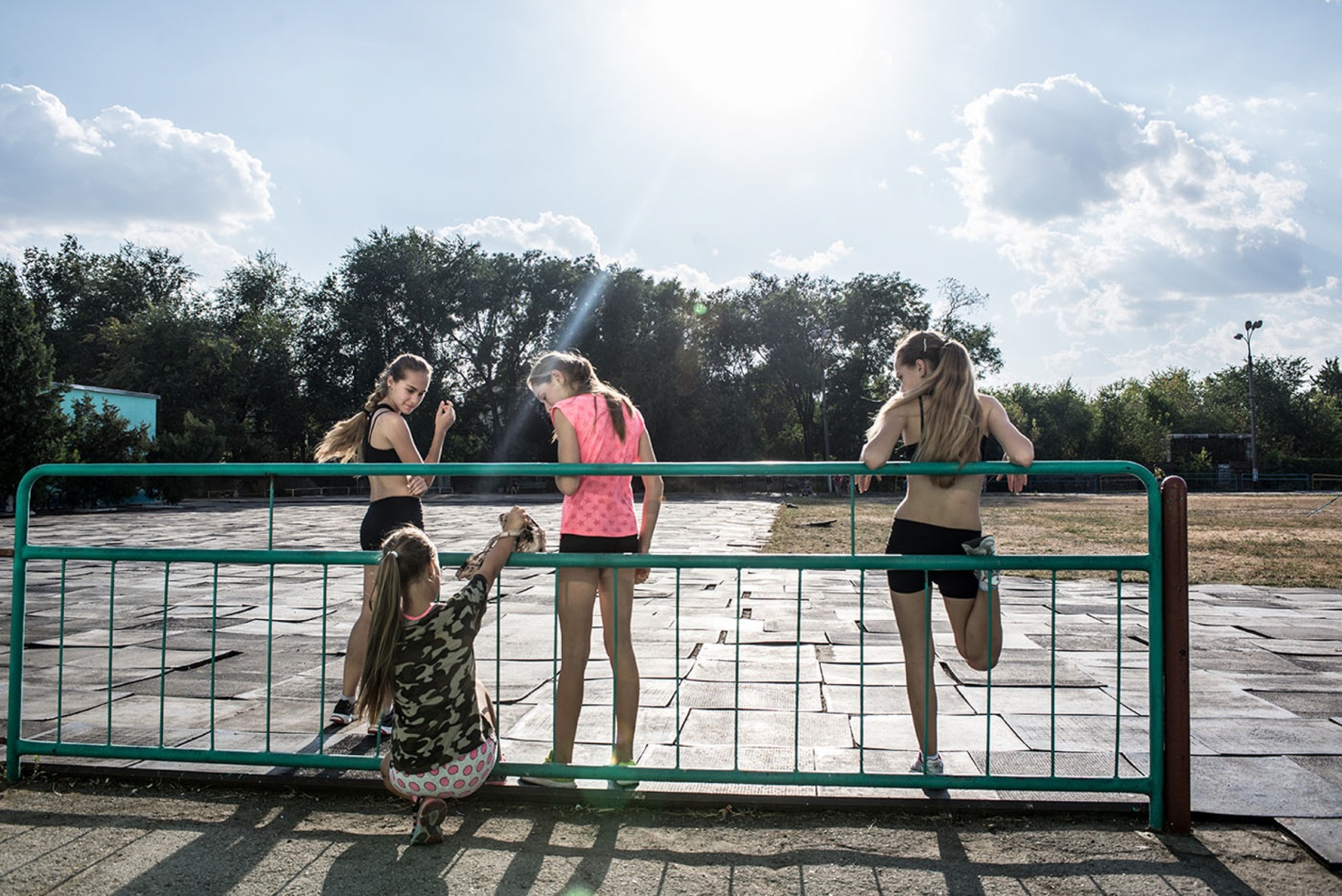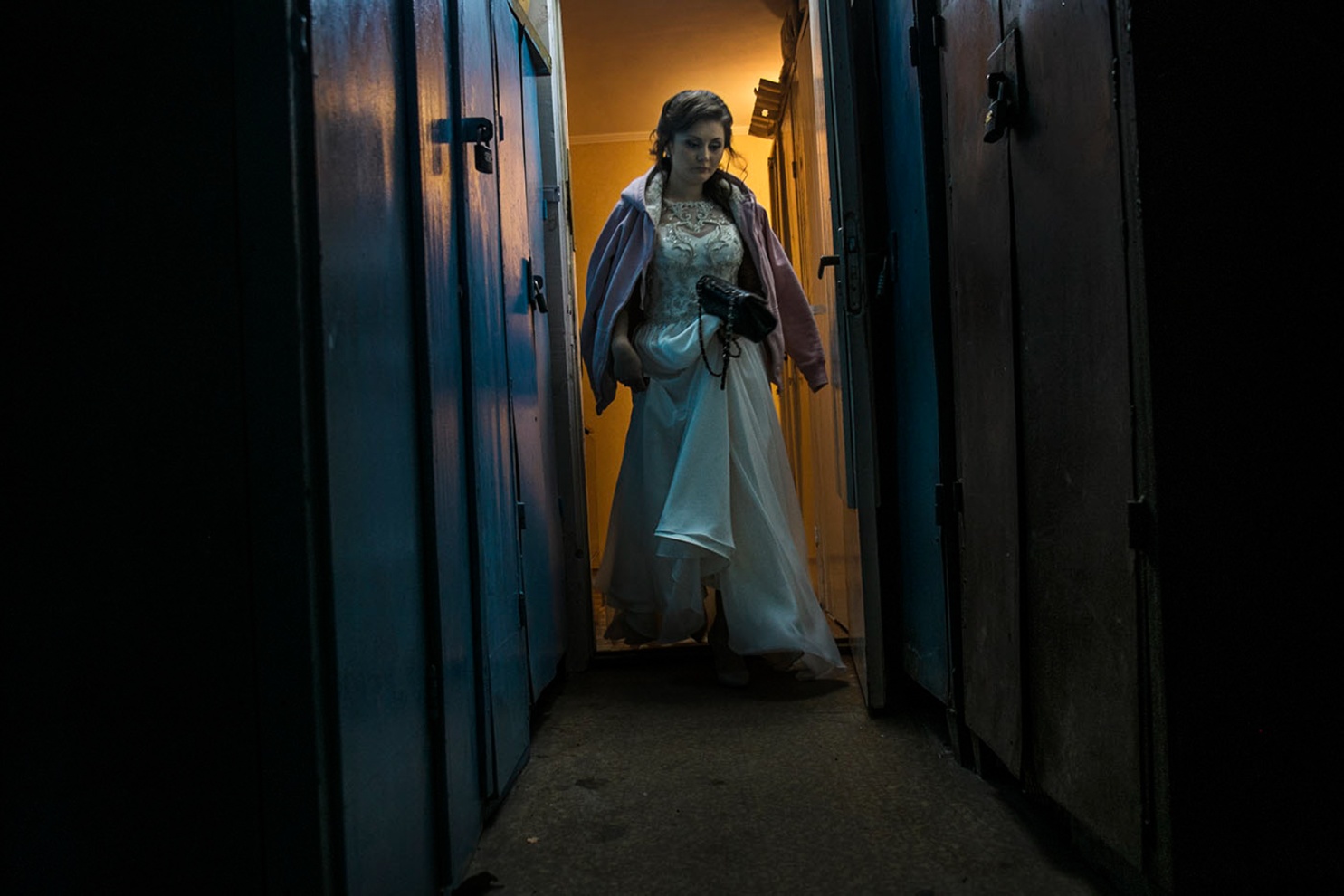«
<
>

Blooming on the other side of the riverTales of a stateless youth
Like all rivers, the Dniester is also a river that divides. A boundary, not only geographically. Cultures, languages, traditions, peoples. In 1992 the river, by metaphor of division , becomes a real line of demarcation. Following Moldova's decision to abolish Russian as official language, the Transnistrian region, a Russian majority, decides to declare independence. Along the Dniester is fought for months, the separatists backed by Russia, Moldova with Romania's support. As early as 1944, when the Red Army crosses it for the reconquest of Bessarabia, the Dniester claims her blood ration. Thus it was born the Transnistria, Придністровська Молдавська Республіка (Prydnistrovs'ka Moldavs'ka Respublika), or Pridnestrovie, literally "Beyond the Dniester River." Today, Transnistria is a “De Facto,” nation, unrecognized, like Nagorno Karabakh, South Ossetia and Abkhazia, one of the most closed in the world. A country with so many souls and roots, which seem misses, sometimes touching, but never understand each other or love each other to the very end. Often told only as a last bastion of post-Soviet memory and vestiges , it is a complex and articulated land. Russian, Ukraine and Moldova identities, do not yet seem to be able to blend in a real identity of Transnistria, and perhaps there is no will of a specific identity. The perception is that of being in Russian territory, as evidenced by the referendum for annexation to Russia , won by yes with more than 90%. In particular young people grow up with the myth of Putin, the USSR, the hammer and sickle in a jumble of ideas, ideologies and hopes. The economic crisis, caused by the international embargo and consequent closure of 90% of the largest industries, led the post independence generations to dream of moving abroad. The only large company is the Sheriff, active in virtually all areas of life of the country. Founded in 1993 by two former members of the secret services, it has gradually expanded in all segments of society ganglia. In this scenario the youth of the country, far from any kind of nationalism, follow the Western or Russian model, in the absence of real cultural or traditional references of Transnistria. Between sports, music, weekend in Odessa, looking for a job or a love that you can take you away, or at least a husband and a son to leave the parental home, so life flows in Tiraspol and Bender, Pridnestrovie, and so flows the Dniester, river, border. Blooming on the other side of the river is the second chapter of a project that i'm doing with my colleague Gianmarco Maraviglia called BLOOMING GENERATION that documents the unrecognized countries born from the dissolution of the Soviet Union, through the stories of younger generations, in search of a national identity and a brighter future. |






































